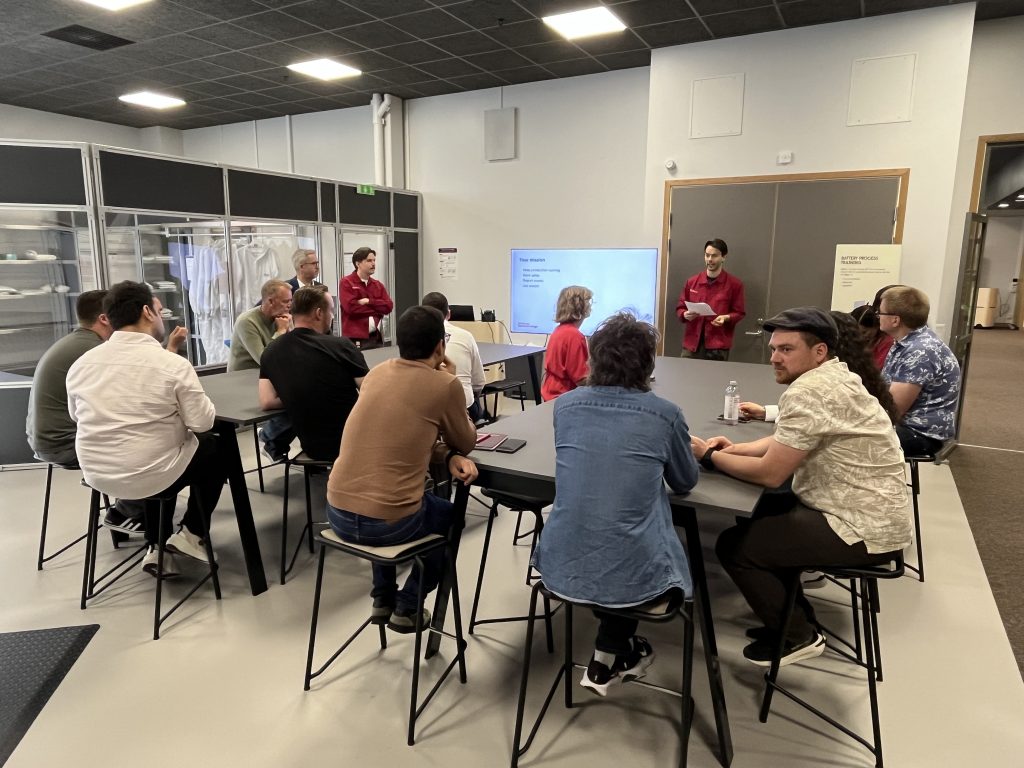
- Results
- June 2025
Training the Battery Experts of Tomorrow in Gothenburg
How do we educate the next generation in a field that is growing rapidly and constantly evolving? Within the Voltage, vocational teachers from across Europe gathered in Gothenburg to build knowledge, and pass it on.
Several initiatives were underway in the Gothenburg region last week to support the battery sector. Voltage is a forward-looking project focused on vocational education and training (VET), aiming to meet the industry’s rapidly changing skills needs.
Over the course of three intensive days, teachers and vocational educators from Finland, Germany, Portugal, Sweden, and Türkiye met at the Battery Centre in Gothenburg, one of Europe’s most modern training hubs for industry and electromobility.
They were participating in Train the Trainer, an educational program within the Voltage, designed to equip teachers from across Europe so they can prepare others for the rapidly growing battery industry. According to João Alves, who leads Voltage’s education-focused second work package, Train the Trainer is a crucial component for the project’s success.
When we talk about education, we often focus on the workforce, not on the people who will educate that workforce. But qualified teachers are absolutely essential if we want to build a strong battery industry in Europe.
Alves highlights three main objectives of the project: building capacity in participating schools and regions, developing training materials, and validating skills and knowledge.
In the EU, we often speak about the free movement of people, but we still struggle with the movement of skills. The biggest challenge is the differences between our education systems.
The course included both theoretical elements and hands-on training, for example, participants observe how students at the Battery Centre use everyday kitchen tools to help them understand parts of the process. Participants also discuss how to adapt the training to their own national contexts.
After completing the training here, we will pass the knowledge on to our students in Türkiye, says Emina Cansu Türkkan, an electrical engineer and vocational teacher.
– We already know how to produce a battery, but here we see the full process and how the Battery Centre teaches it. It really helps us connect theory and practice.
Theres Saad, a teacher at Gothenburg Technical College and one of the instructors during the training, sees great value in bringing together educators from different countries.
– The most rewarding part is the exchange of ideas. We always gain new perspectives, feedback, and eye-openers on how we can improve our own teaching. And the networking is incredibly valuable.
For Türkkan, the goal after the training is clear:
– I want to bring all this knowledge home and share it with our students. This is knowledge that is truly needed.